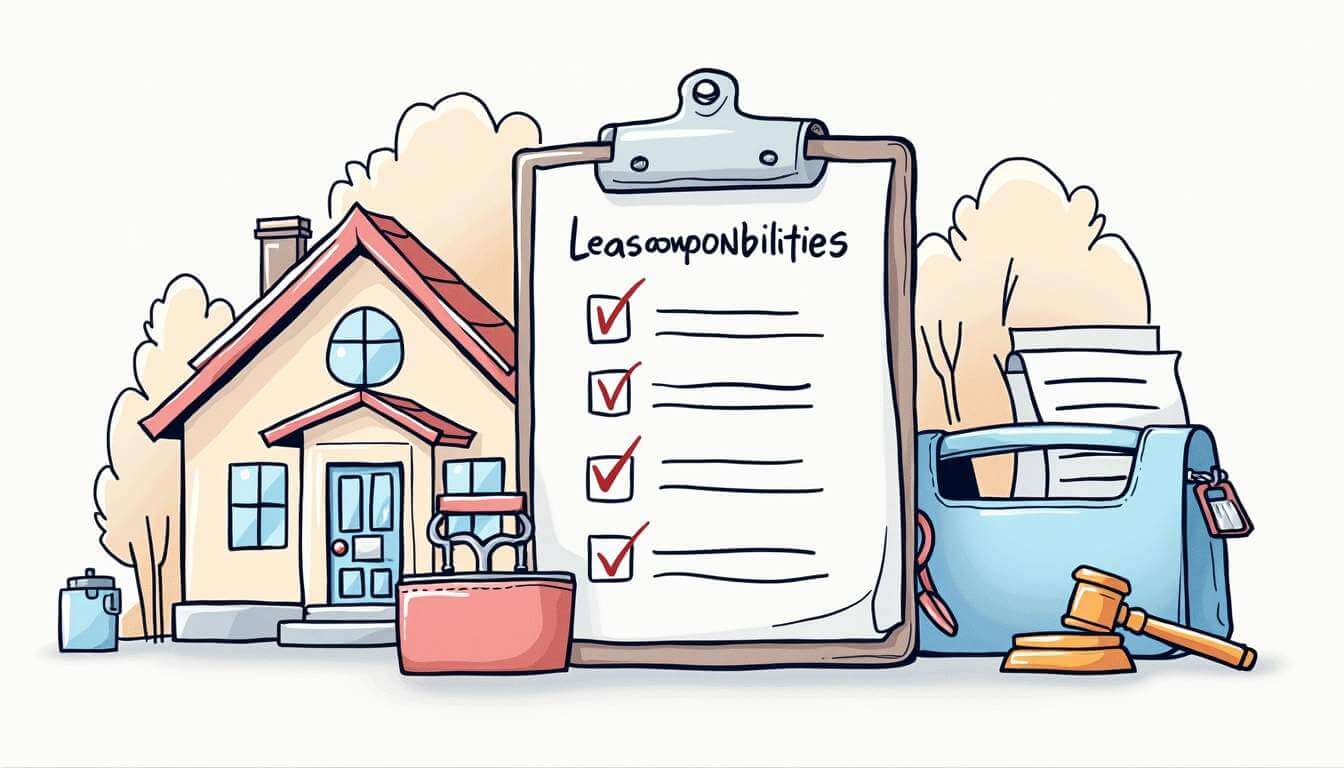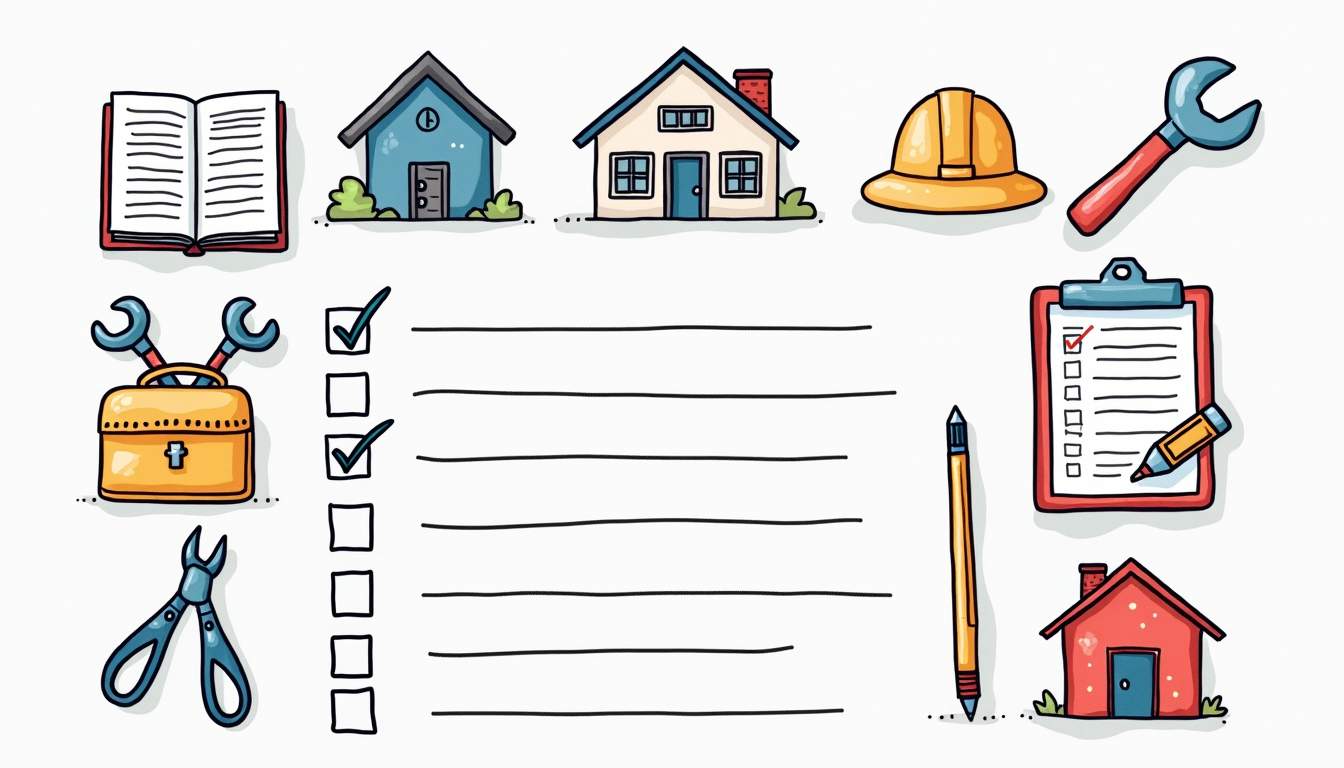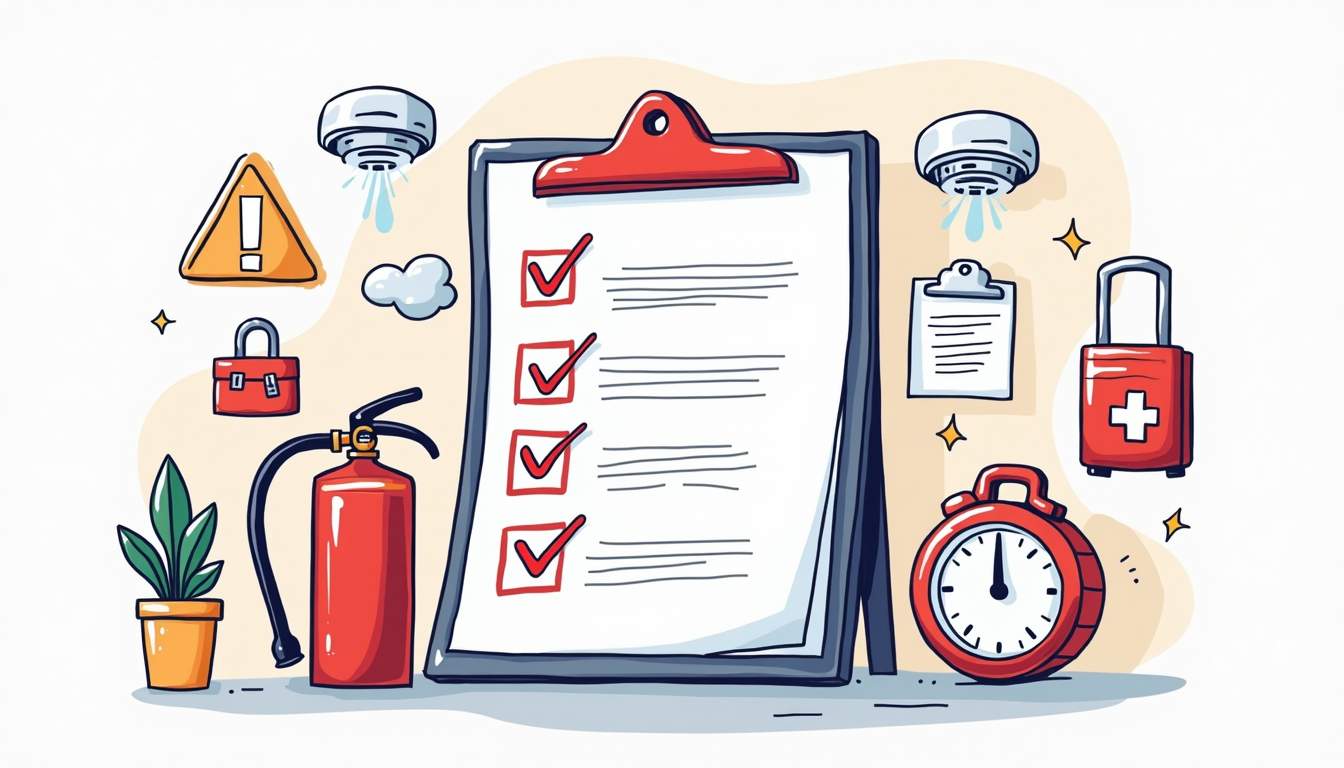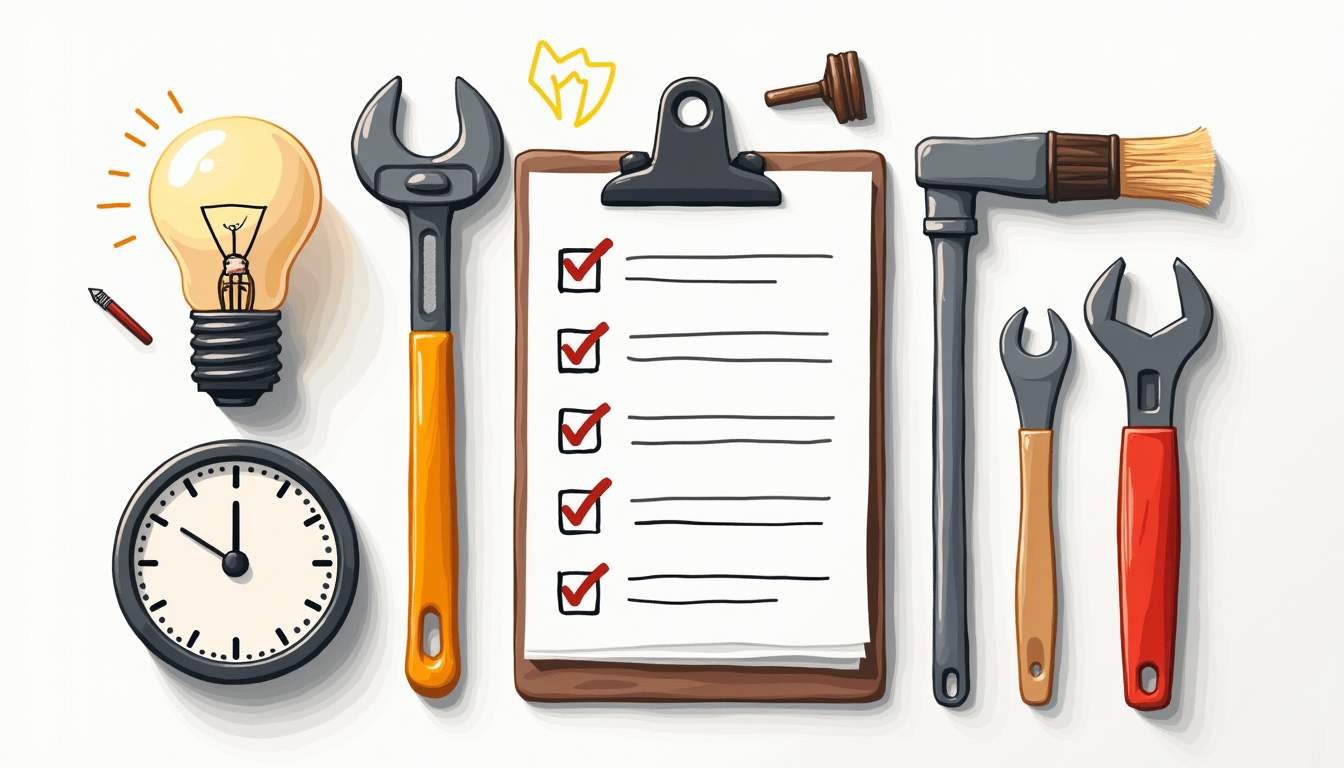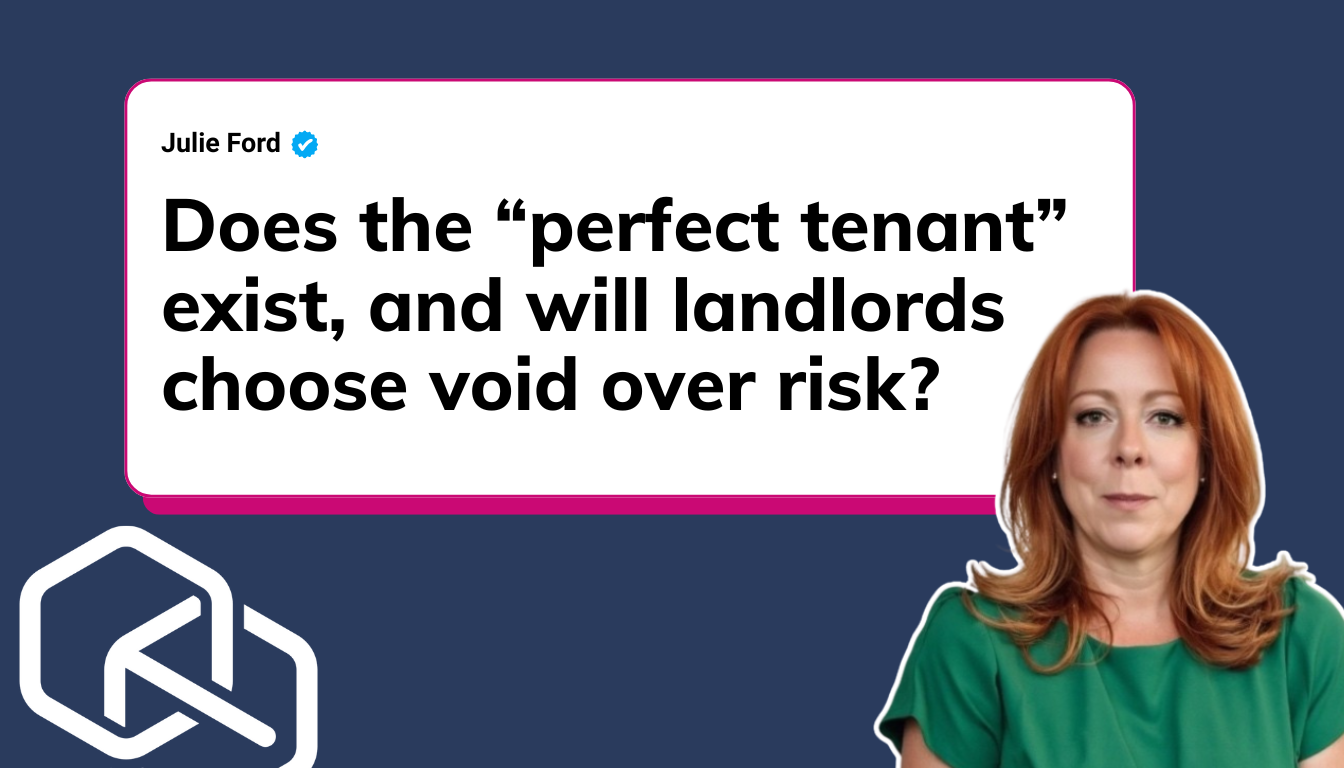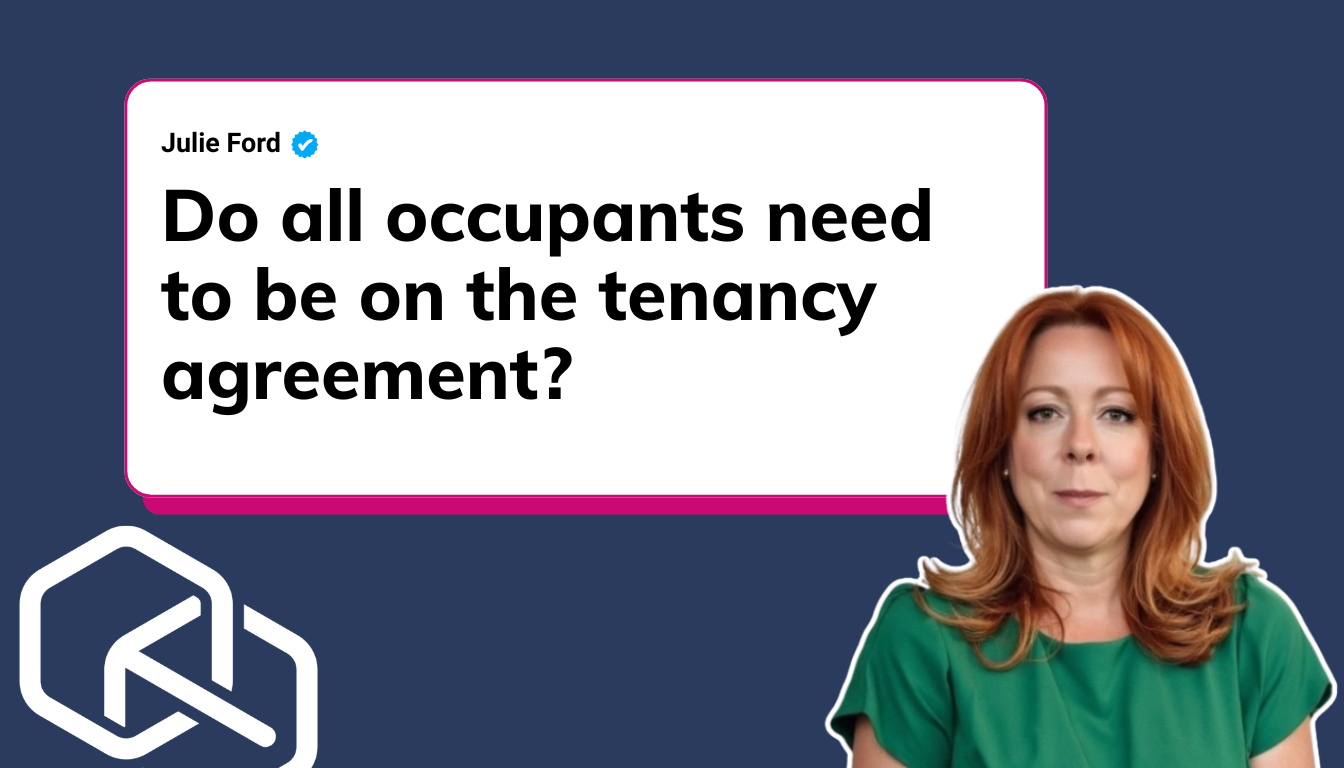Being a landlord comes with a crucial set of responsibilities, particularly in the UK. Understanding these obligations is paramount for maintaining a good relationship with tenants and ensuring compliance with the law. This article aims to provide a comprehensive checklist of landlord responsibilities, ensuring you know what is required of you.
Understanding Landlord Responsibilities
Landlord responsibilities encompass a wide range of legal, financial, and ethical obligations. These include ensuring the property is safe, habitable, and compliant with regulations while also fulfilling financial commitments associated with the rental agreement. By having a clear understanding of what is expected, landlords can effectively manage their properties and foster a positive rental experience. This not only benefits the landlord but also enhances tenant satisfaction, which can lead to longer lease terms and a more stable rental income.
Legal Obligations of a Landlord
Legal obligations are perhaps the most critical responsibilities a landlord must uphold. In the UK, landlords are required to:
- Ensure the property is safely occupied and meets health and safety standards.
- Provide an Energy Performance Certificate (EPC) to tenants.
- Secure tenant deposits in a government-approved scheme.
- Comply with the regulations regarding tenant eviction and notice periods.
Failure to meet these legal obligations can result in penalties, fines, or even legal action, making it essential for landlords to be aware of current laws and regulations. Moreover, staying informed about changes in legislation, such as updates to the Housing Health and Safety Rating System (HHSRS) or new energy efficiency requirements, can help landlords avoid potential pitfalls and maintain a good standing in the rental market.
Financial Responsibilities of a Landlord
In addition to legal responsibilities, landlords also have significant financial obligations. These typically include the following:
- Collecting rent on time and managing any late payments.
- Covering the costs of property maintenance and repairs.
- Paying property taxes and insurance.
Proper financial management contributes to a sustainable rental business. Keeping track of all income and expenses can also help when it comes time to prepare annual tax returns. Furthermore, landlords should consider setting aside a reserve fund specifically for unexpected repairs or emergencies, such as plumbing issues or roof damage, which can arise without warning. This proactive approach not only protects the property but also ensures that tenants remain satisfied and secure in their living environment, ultimately leading to a more successful landlord-tenant relationship.
Safety Regulations for Landlords
Safety is paramount when it comes to rental properties. Landlords must ensure their properties comply with multiple safety regulations to protect tenants and avoid legal repercussions. These regulations are designed not only to safeguard the physical well-being of tenants but also to foster a sense of security and trust in the landlord-tenant relationship. A proactive approach to safety can enhance tenant satisfaction and retention, ultimately benefiting the landlord’s investment.
Fire Safety Requirements
Fire safety is a crucial aspect of landlord responsibility. Landlords must:
- Install smoke alarms on every floor of the property.
- Ensure carbon monoxide detectors are fitted in rooms with gas appliances.
- Conduct regular fire risk assessments and provide evacuation plans.
Regular inspections and maintenance of fire safety equipment are necessary to comply with fire safety legislation and keep tenants safe. Additionally, landlords should educate tenants on fire safety practices, such as the importance of keeping exits clear and knowing how to respond in case of an emergency. Providing tenants with a fire safety information booklet can be an effective way to ensure they understand the risks and the measures in place to protect them.
Gas and Electrical Safety Standards
In the UK, landlords must also adhere to strict gas and electrical safety standards. This includes:
- Carrying out annual gas safety checks through a qualified Gas Safe registered engineer.
- Ensuring that all electrical installations are safe and up to code, often requiring periodic inspections.
Failure to comply with these safety standards not only endangers tenants but can also result in severe penalties for the landlord. Moreover, landlords should keep detailed records of all safety checks and maintenance work performed. This documentation serves as proof of compliance and can be invaluable in the event of a dispute or inspection. Furthermore, landlords may consider investing in additional safety features, such as surge protectors and RCDs (Residual Current Devices), to further enhance the safety of their electrical systems, providing an extra layer of protection for their tenants.
Maintenance and Repairs: A Landlord’s Duty
Maintenance and repairs form a core part of a landlord’s responsibilities, which are vital in ensuring tenants are comfortable and satisfied with their living conditions.
Dealing with Emergency Repairs
Emergency repairs, such as plumbing leaks, heating issues, or electrical failures, need immediate attention. Landlords should:
- Establish a reliable method for tenants to report emergencies.
- Respond to emergency repair requests promptly, usually within 24 hours.
- Have a list of trusted tradespeople for quick resolution.
Quick response times for emergencies can significantly enhance tenant satisfaction and prevent further damage to the property. Additionally, landlords should consider implementing a 24/7 emergency hotline or a dedicated online platform where tenants can easily submit issues. This proactive approach not only streamlines communication but also reassures tenants that their concerns are taken seriously, fostering a sense of security and trust in their living environment.
Regular Property Maintenance
Beyond emergencies, regular maintenance is crucial. Landlords are responsible for:
- Conducting periodic inspections of the property.
- Performing routine repairs such as gutter cleaning, servicing boilers, and painting.
- Addressing wear and tear promptly to maintain property value.
Regular attention to maintenance not only keeps the property in good shape but also contributes to tenant retention. Furthermore, landlords should consider creating a seasonal maintenance checklist to ensure that all necessary tasks are completed in a timely manner. This could include checking smoke detectors, inspecting HVAC systems, and ensuring that outdoor spaces are safe and well-maintained. By being proactive in these efforts, landlords can not only prevent larger issues from arising but also demonstrate their commitment to providing a safe and pleasant living environment for their tenants, which can lead to longer lease agreements and positive word-of-mouth referrals.
Tenant Rights and Landlord Responsibilities
An understanding of tenant rights is essential for landlords. By being aware of these rights, landlords can ensure they are meeting their responsibilities effectively. This knowledge not only protects tenants but also helps landlords avoid potential legal disputes and fosters a more harmonious living environment.
Right to Live in a Habitable Property
Tenants in the UK have the right to live in a property that is safe and habitable. This means that the property must:
- Have adequate heating, ventilation, and sanitation.
- Be structurally sound without significant damage.
- Be free from pests and damp issues.
Landlords must ensure that these basic living conditions are consistently met throughout the tenancy. Regular maintenance checks and prompt repairs are crucial in upholding these standards. For instance, landlords should conduct seasonal inspections to ensure that heating systems are functioning properly before winter sets in. Additionally, addressing any signs of dampness or pest infestations immediately can prevent further damage and ensure tenant comfort.
Right to Privacy and Quiet Enjoyment
Tenants also have the right to privacy and the quiet enjoyment of their home. Landlords must respect this by:
- Providing at least 24 hours of notice before entering the property for inspections or repairs.
- Not harassing tenants or disturbing their peace without good reason.
Maintaining respect for tenant privacy fosters a positive landlord-tenant relationship. It is also essential for landlords to establish clear communication channels, allowing tenants to voice concerns or request repairs without fear of reprisal. This openness can lead to a more cooperative atmosphere, where both parties feel valued and respected. Furthermore, understanding the legal implications of entering a tenant’s property can help landlords avoid unintentional violations of privacy rights, which can lead to grievances or even legal action.
Navigating Rental Payments and Deposits
Understanding the financial aspects of renting properties is crucial for landlords, particularly regarding rental payments and deposits.
Setting and Collecting Rent
When it comes to setting the rent amount, landlords should consider:
- The average rental prices in the local area.
- The condition and features of the property.
- The target demographic of potential tenants.
Once rent is set, landlords must establish clear methods for collecting payments, whether through direct debit, bank transfer, or other means.
Handling Security Deposits
Security deposits can be a contentious issue. Landlords must:
- Collect a deposit, typically equivalent to five weeks’ rent.
- Secure the deposit in a government-approved tenancy deposit scheme.
- Provide tenants with a copy of the deposit protection certificate and information about the scheme.
Being transparent about deposit handling can prevent disputes and establish trust between landlords and tenants.
In conclusion, being a landlord in the UK entails numerous responsibilities, from legal and financial obligations to maintaining a safe and habitable environment. By adhering to these guiding principles, landlords can ensure a fulfilling rental experience for all parties involved.
Streamline Your Landlord Duties with COHO
Managing your responsibilities as a landlord can be complex and time-consuming. With COHO’s innovative property management software, you can effortlessly navigate the intricacies of HMOs, single-lets, student HMOs, and diverse rental portfolios. Our platform is designed to consolidate your tasks into one seamless workflow, enhancing efficiency and effectiveness. Ready to transform your property management experience? Try COHO for Free today and take the first step towards simplified and successful property management.
Being a landlord comes with a crucial set of responsibilities, particularly in the UK. Understanding these obligations is paramount for maintaining a good relationship with tenants and ensuring compliance with the law. This article aims to provide a comprehensive checklist of landlord responsibilities, ensuring you know what is required of you.
Understanding Landlord Responsibilities
Landlord responsibilities encompass a wide range of legal, financial, and ethical obligations. These include ensuring the property is safe, habitable, and compliant with regulations while also fulfilling financial commitments associated with the rental agreement. By having a clear understanding of what is expected, landlords can effectively manage their properties and foster a positive rental experience. This not only benefits the landlord but also enhances tenant satisfaction, which can lead to longer lease terms and a more stable rental income.
Legal Obligations of a Landlord
Legal obligations are perhaps the most critical responsibilities a landlord must uphold. In the UK, landlords are required to:
- Ensure the property is safely occupied and meets health and safety standards.
- Provide an Energy Performance Certificate (EPC) to tenants.
- Secure tenant deposits in a government-approved scheme.
- Comply with the regulations regarding tenant eviction and notice periods.
Failure to meet these legal obligations can result in penalties, fines, or even legal action, making it essential for landlords to be aware of current laws and regulations. Moreover, staying informed about changes in legislation, such as updates to the Housing Health and Safety Rating System (HHSRS) or new energy efficiency requirements, can help landlords avoid potential pitfalls and maintain a good standing in the rental market.
Financial Responsibilities of a Landlord
In addition to legal responsibilities, landlords also have significant financial obligations. These typically include the following:
- Collecting rent on time and managing any late payments.
- Covering the costs of property maintenance and repairs.
- Paying property taxes and insurance.
Proper financial management contributes to a sustainable rental business. Keeping track of all income and expenses can also help when it comes time to prepare annual tax returns. Furthermore, landlords should consider setting aside a reserve fund specifically for unexpected repairs or emergencies, such as plumbing issues or roof damage, which can arise without warning. This proactive approach not only protects the property but also ensures that tenants remain satisfied and secure in their living environment, ultimately leading to a more successful landlord-tenant relationship.
Safety Regulations for Landlords
Safety is paramount when it comes to rental properties. Landlords must ensure their properties comply with multiple safety regulations to protect tenants and avoid legal repercussions. These regulations are designed not only to safeguard the physical well-being of tenants but also to foster a sense of security and trust in the landlord-tenant relationship. A proactive approach to safety can enhance tenant satisfaction and retention, ultimately benefiting the landlord’s investment.
Fire Safety Requirements
Fire safety is a crucial aspect of landlord responsibility. Landlords must:
- Install smoke alarms on every floor of the property.
- Ensure carbon monoxide detectors are fitted in rooms with gas appliances.
- Conduct regular fire risk assessments and provide evacuation plans.
Regular inspections and maintenance of fire safety equipment are necessary to comply with fire safety legislation and keep tenants safe. Additionally, landlords should educate tenants on fire safety practices, such as the importance of keeping exits clear and knowing how to respond in case of an emergency. Providing tenants with a fire safety information booklet can be an effective way to ensure they understand the risks and the measures in place to protect them.
Gas and Electrical Safety Standards
In the UK, landlords must also adhere to strict gas and electrical safety standards. This includes:
- Carrying out annual gas safety checks through a qualified Gas Safe registered engineer.
- Ensuring that all electrical installations are safe and up to code, often requiring periodic inspections.
Failure to comply with these safety standards not only endangers tenants but can also result in severe penalties for the landlord. Moreover, landlords should keep detailed records of all safety checks and maintenance work performed. This documentation serves as proof of compliance and can be invaluable in the event of a dispute or inspection. Furthermore, landlords may consider investing in additional safety features, such as surge protectors and RCDs (Residual Current Devices), to further enhance the safety of their electrical systems, providing an extra layer of protection for their tenants.
Maintenance and Repairs: A Landlord’s Duty
Maintenance and repairs form a core part of a landlord’s responsibilities, which are vital in ensuring tenants are comfortable and satisfied with their living conditions.
Dealing with Emergency Repairs
Emergency repairs, such as plumbing leaks, heating issues, or electrical failures, need immediate attention. Landlords should:
- Establish a reliable method for tenants to report emergencies.
- Respond to emergency repair requests promptly, usually within 24 hours.
- Have a list of trusted tradespeople for quick resolution.
Quick response times for emergencies can significantly enhance tenant satisfaction and prevent further damage to the property. Additionally, landlords should consider implementing a 24/7 emergency hotline or a dedicated online platform where tenants can easily submit issues. This proactive approach not only streamlines communication but also reassures tenants that their concerns are taken seriously, fostering a sense of security and trust in their living environment.
Regular Property Maintenance
Beyond emergencies, regular maintenance is crucial. Landlords are responsible for:
- Conducting periodic inspections of the property.
- Performing routine repairs such as gutter cleaning, servicing boilers, and painting.
- Addressing wear and tear promptly to maintain property value.
Regular attention to maintenance not only keeps the property in good shape but also contributes to tenant retention. Furthermore, landlords should consider creating a seasonal maintenance checklist to ensure that all necessary tasks are completed in a timely manner. This could include checking smoke detectors, inspecting HVAC systems, and ensuring that outdoor spaces are safe and well-maintained. By being proactive in these efforts, landlords can not only prevent larger issues from arising but also demonstrate their commitment to providing a safe and pleasant living environment for their tenants, which can lead to longer lease agreements and positive word-of-mouth referrals.
Tenant Rights and Landlord Responsibilities
An understanding of tenant rights is essential for landlords. By being aware of these rights, landlords can ensure they are meeting their responsibilities effectively. This knowledge not only protects tenants but also helps landlords avoid potential legal disputes and fosters a more harmonious living environment.
Right to Live in a Habitable Property
Tenants in the UK have the right to live in a property that is safe and habitable. This means that the property must:
- Have adequate heating, ventilation, and sanitation.
- Be structurally sound without significant damage.
- Be free from pests and damp issues.
Landlords must ensure that these basic living conditions are consistently met throughout the tenancy. Regular maintenance checks and prompt repairs are crucial in upholding these standards. For instance, landlords should conduct seasonal inspections to ensure that heating systems are functioning properly before winter sets in. Additionally, addressing any signs of dampness or pest infestations immediately can prevent further damage and ensure tenant comfort.
Right to Privacy and Quiet Enjoyment
Tenants also have the right to privacy and the quiet enjoyment of their home. Landlords must respect this by:
- Providing at least 24 hours of notice before entering the property for inspections or repairs.
- Not harassing tenants or disturbing their peace without good reason.
Maintaining respect for tenant privacy fosters a positive landlord-tenant relationship. It is also essential for landlords to establish clear communication channels, allowing tenants to voice concerns or request repairs without fear of reprisal. This openness can lead to a more cooperative atmosphere, where both parties feel valued and respected. Furthermore, understanding the legal implications of entering a tenant’s property can help landlords avoid unintentional violations of privacy rights, which can lead to grievances or even legal action.
Navigating Rental Payments and Deposits
Understanding the financial aspects of renting properties is crucial for landlords, particularly regarding rental payments and deposits.
Setting and Collecting Rent
When it comes to setting the rent amount, landlords should consider:
- The average rental prices in the local area.
- The condition and features of the property.
- The target demographic of potential tenants.
Once rent is set, landlords must establish clear methods for collecting payments, whether through direct debit, bank transfer, or other means.
Handling Security Deposits
Security deposits can be a contentious issue. Landlords must:
- Collect a deposit, typically equivalent to five weeks’ rent.
- Secure the deposit in a government-approved tenancy deposit scheme.
- Provide tenants with a copy of the deposit protection certificate and information about the scheme.
Being transparent about deposit handling can prevent disputes and establish trust between landlords and tenants.
In conclusion, being a landlord in the UK entails numerous responsibilities, from legal and financial obligations to maintaining a safe and habitable environment. By adhering to these guiding principles, landlords can ensure a fulfilling rental experience for all parties involved.
Streamline Your Landlord Duties with COHO
Managing your responsibilities as a landlord can be complex and time-consuming. With COHO’s innovative property management software, you can effortlessly navigate the intricacies of HMOs, single-lets, student HMOs, and diverse rental portfolios. Our platform is designed to consolidate your tasks into one seamless workflow, enhancing efficiency and effectiveness. Ready to transform your property management experience? Try COHO for Free today and take the first step towards simplified and successful property management.

